2004: The Year in Review, Part 4
Our review of the year concludes with a lookback at Sega Sammy, next-gen handheld launches, videogame mega-sales, console shortages, working conditions and more besides. What a year!
[Part 1] [Part 2] [Part 3] [Part 4]
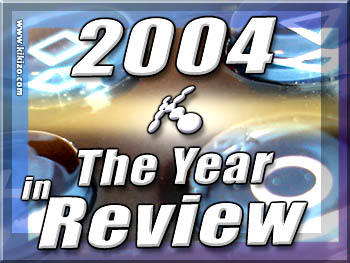
Part 4
Sega Sammy Holdings
In October, the videogame industry lost one of its principal players as Sega ceased to be an independent company, merging with Japanese gambling and arcade game company Sammy. The union came after a rough five years for Sega, during which the company had released the Dreamcast and some of the best-reviewed games in recent memory.
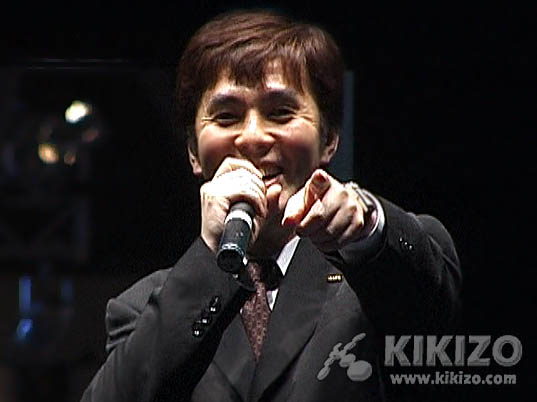 Sega President Hisao Oguchi might look happy in this shot but you can bet he was peeved when Sega was taken over
Sega President Hisao Oguchi might look happy in this shot but you can bet he was peeved when Sega was taken overKikizo reported in-depth on the developments of one of its favourite publishers, from the news of Sammy's initial 22% purchase in 2003, to the full details being made official back in February.
Sega had been in financial trouble since Dreamcast's release, and the hostile takeover by Sammy provoked mixed reactions among the industry and fans. Sega has continued to create the games it is renowned for, with titles like OutRun2 scooping up acclaim from both arcade and console gamers. Kikizo believes Sega still has some surprising software to be announced in 2005, but it is difficult to say how things will turn out in the long term.
Next Gen Handhelds A Reality
After nearly a year of jockeying, both Sony's PSP and the Nintendo DS hit stores outside the UK. The Nintendo DS launched in North America first - the first time a Nintendo platform has ever been released first outside of Japan, where the machine arrived two weeks later. The handheld was a hit in both territories, selling well over 2 million units by the end of the year, even as Nintendo scrambled to produce more.
The numbers for the PSP might not have ended as high after the December release in Japan, but the limited availability pushed demand to levels not seen since the release of the PlayStation 2. Neither portable made it to the UK in 2004, but both Nintendo and Sony are just weeks away from announcing official launch details.
Consoles Become Hard to Find
In November, Sony released the redesigned PlayStation 2. The console, which saw its size reduced by two-thirds, was an instant success, and reclaimed the top of the hardware sales charts. And then the supplies dried up. Sony placed the blame for the shortage right before Christmas on a supply ship stuck in the Suez Canal and even went as far as to arrange for shipments of the slimline PlayStation 2 to be airlifted to the UK. It wasn't enough though.
 PS2 shortages were so extreme that Xbox started to experience the same problem, though GameCube sales were unaffected
PS2 shortages were so extreme that Xbox started to experience the same problem, though GameCube sales were unaffectedIn fact, demand for the PlayStation 2 was so high, that the number of people that bought Xboxes instead led to Microsoft suffering with stock problems towards the end of the year too. This farcical situation should have allowed the GameCube to see a solid increase in sales, but even with its low price and family friendly library of Nintendo games the console's performance hardly improved at all.
Big Games Make Big Bucks
The opening months of 2004 served as a necessary preamble to the last three months of the year when the biggest games arrived on store shelves. Grand Theft Auto: San Andreas came first, in late October, and it took just nine days for the game to sell more than a million copies in the UK alone. Halo 2 followed, just two weeks later, and again records were broken.
In the US, more than 1.5 million copies were pre-ordered, and by the end of the first day the game had earned Microsoft $125million. Sales were excellent in the UK too, as Halo 2 unsurprisingly became the fastest selling Xbox game ever in the UK. Sales for Halo 2 were so good that it took less than three weeks to surpass the 5 million mark set by its predecessor over the course of three years.
On the PC, the biggest game of the year was Valve's Half-Life 2. And just like Halo 2, Grand Theft Auto: San Andreas and Doom 3 earlier in the year, illegal copies were available to download from the Internet even before the game hit stores. Sales didn't seem to suffer, as the game still sold well, but leaks of big games are rapidly becoming a major issue for publishers. On the plus side, European publishers have done an excellent job in 2004 with localising the biggest games, most of which - save for some like Metal Gear Solid 3: Snake Eater and Gran Turismo 4 - were released side-by-side with the North American and Japanese versions.
Resident Evil 4 Goes Multiplatform
The GameCube has not been in the best shape in 2004, despite the excellent games Nintendo continued to put out. There was always one exclusive game, though, that pitched right at the mature gamers Nintendo dearly needs to court: Resident Evil 4.
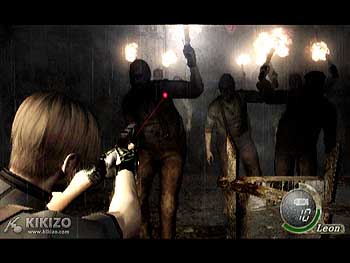 No longer a Cube exclusive, Resi 4 is coming to PS2, and, we're told, Xbox as well. Expect more news in the New year.
No longer a Cube exclusive, Resi 4 is coming to PS2, and, we're told, Xbox as well. Expect more news in the New year.Unfortunately for Nintendo, the exclusivity deal fell through as the year drew to a close, and the game is now scheduled for release on PlayStation 2, albeit much later in 2005. There are even reports that the game will be released on Xbox as well, but this has not been officially confirmed yet.
Format Wars Looming Again
In the 80s we had VHS and Beta, which fought to become the standard video format. PlayStation 2 included support for DVD, thus helping the format gain a firmer foothold among customers at the expense of VHS.
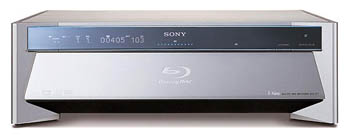 One of Sony's first Blu-Ray players. The same media format will feature in PS3, while Xenon opts for HD-DVD
One of Sony's first Blu-Ray players. The same media format will feature in PS3, while Xenon opts for HD-DVDThe next generation of videogame consoles are set to straddle the format lines again, with the announcement that Sony will be adopting its own Blu-Ray high-definition video format for the next PlayStation, while Microsoft is putting its money on HD-DVD for the Xbox successor. Both video formats already have support from a battery of movie studios, so it's difficult to see one easily come out on top. In the end, it's customers that will suffer as the industry spirals lazily toward the next video standard.
Working Conditions Under Scrutiny
While making games at a big company seems like a dream job to ambitious bedroom coders, reality is oftentimes not as sugary. In November, the disgruntled wife of an EA employee took to the Web in support of her husband who was being forced to work very long hours with little in the way of acknowledgement from the company.
Soon, more and more stories from developers came out, leading to a statement by industry body the International Game Developers Association that took EA, and the industry as a whole, to task for its "horrible working conditions". And with the taxing move to the next generation of home consoles imminent, work demands can only get more intense.
Next Round of Consoles Come Knocking
It's been six years now since the Dreamcast ushered in the current generation of consoles. Sony, Microsoft and Nintendo are all working hard to prepare their next high-powered machines. All three consoles have been confirmed to turn up in some form at May's Electronic Entertainment Expo in Los Angeles.
 PS3, as shown in this artist's impression, will boast
PS3, as shown in this artist's impression, will boasta graphics processor from market leaders Nvidia.
In October, the organisers of the Consumer Electronics Show confirmed that Microsoft president Bill Gates would deliver the keynote address at the January conference. If Microsoft sticks to the pattern it took in the run up to the release of the Xbox, Gates will officially announce Xenon details at the show. PlayStation 3 is widely anticipated to follow afterwards.
And Just Like That, it's Over
This year was one of the most exciting the videogame industry has seen in decades. Hardware, software, success and failure - 2004 had it all. And 2005 looks to be even better.
- Part 1: Winter 2004
- Part 2: Spring 2004
- Part 3: Summer 2004
- Part 4: Autumn 2004
Browse to Rest of Feature:
Kikizo Staff
Are betting next year will be even hotter.

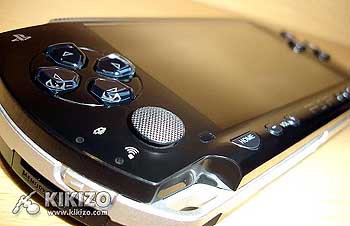
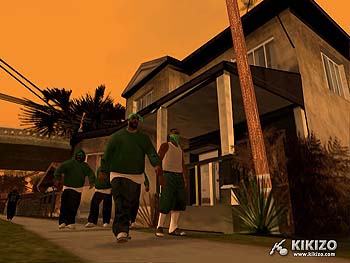
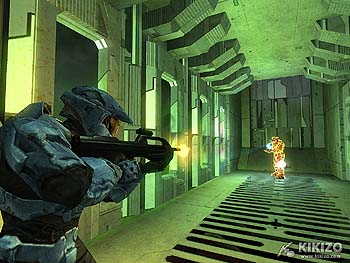
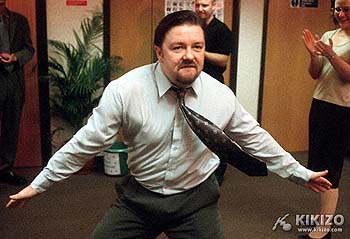




 Satoru Iwata Video Interview - the late Nintendo president spoke with Kikizo in 2004 as 'Nintendo Revolution' loomed.
Satoru Iwata Video Interview - the late Nintendo president spoke with Kikizo in 2004 as 'Nintendo Revolution' loomed. Kaz Hirai Video Interview - the first of Kikizo's interviews with the man who went on to become global head of Sony.
Kaz Hirai Video Interview - the first of Kikizo's interviews with the man who went on to become global head of Sony. Ed Fries Video Interview - one of Xbox's founders discusses an epic journey from Excel to Xbox.
Ed Fries Video Interview - one of Xbox's founders discusses an epic journey from Excel to Xbox. Yu Suzuki, the Kikizo Interview - we spend time with one of gaming's most revered creators.
Yu Suzuki, the Kikizo Interview - we spend time with one of gaming's most revered creators. Tetris - The Making of an Icon: Alexey Pajitnov and Henk Rogers reveal the fascinating story behind Tetris
Tetris - The Making of an Icon: Alexey Pajitnov and Henk Rogers reveal the fascinating story behind Tetris Rare founders, Chris and Tim Stamper - their only interview? Genuinely 'rare' sit down with founders of the legendary studio.
Rare founders, Chris and Tim Stamper - their only interview? Genuinely 'rare' sit down with founders of the legendary studio. The History of First-Person Shooters - a retrospective, from Maze War to Modern Warfare
The History of First-Person Shooters - a retrospective, from Maze War to Modern Warfare